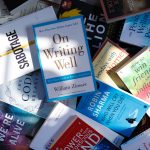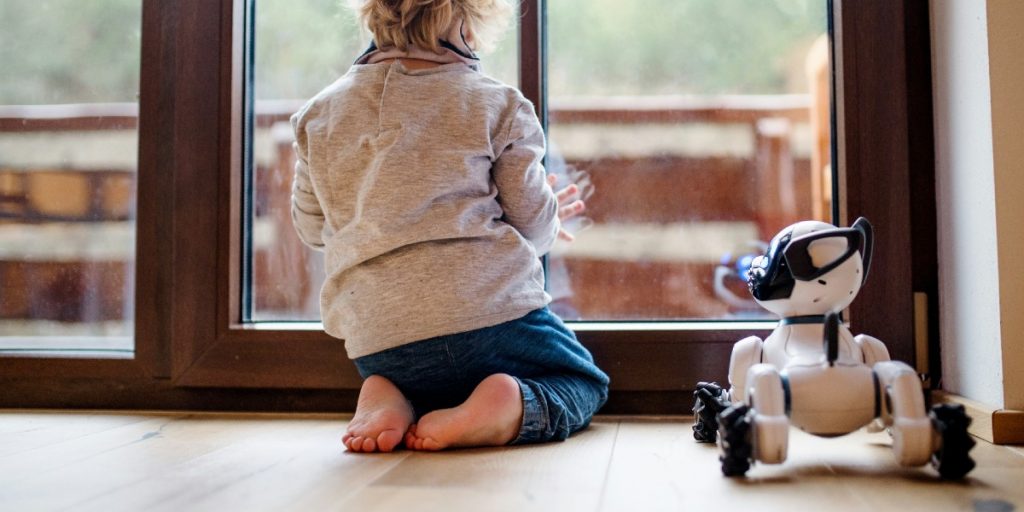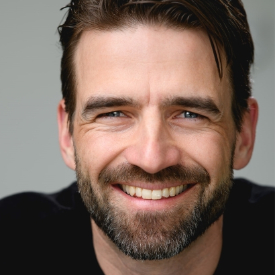Why do we fear uncertainty to a pathological degree?
Why does uncertainty get the best of us, prompt us to stay the course, and lead us to turn down promising opportunities?
These were the questions swirling through my mind as I headed to Washington, DC last week to give a talk at the U.S. State Department about my forthcoming book, The Democratic Coup d’État. Leading up to the talk, uncertainty began to loom large.
Everything from the audience to the setting was fraught with uncertainty. This wasn’t my usual academic crowd, or a classroom of bright-eyed, bushy-tailed students. They were diplomats, foreign service officers, and former consuls with decades of practical experience living in the countries I would cover in my talk.
The State Department also wasn’t my home turf. Would there be a podium? Would I be able to walk around the room, as I normally do? How big would the audience be?
This line of internal questioning began to resemble an old torture technique. Beset by uncertainty, I started to dread the talk, instead of being elated at the opportunity to speak.
In the end, the uncertainties were far more ominous in my head than in reality. I loved every minute of the talk and left Washington, DC deeply grateful for having the opportunity to spend a thought-provoking hour at the State Department.
As children, we found uncertainty exhilarating.
We’d ask relentless questions that bugged adults who tend to assume that everything important has been settled already. We’d experiment. We’d fail, fail, and fail some more. We’d stare at the night sky with awe and ponder the possibilities.
But somewhere along the way, the comfort of certainty begins to trump the romance of uncertainty. As student loans and mortgages mount, as we settle into adulthood and the responsibilities of “real life,” certainty becomes a refuge. We slowly lose our sense of wonderment and begin looking for shortcuts around the messy reality of uncertainty.
I observe this phenomenon acutely in the law school classes that I teach.
Law school is notoriously designed to force students to engage in extraordinary thinking, push to the edges, and explore the uncertain.
But as we hash out the nuances of the Commerce Clause, I can tell that some students are lost in the soft glow of their laptop screens as they ponder, “Just give me the conclusion. Don’t bother me with the facts.” The same students get frustrated when I give the much-dreaded “It depends” answer when they’re looking for a “hack” or a clear shortcut to the finish line (which doesn’t exist).
When we prefer the seeming stability of certainty to the messy reality of uncertainty, facts become dispensable.
It’s no wonder that all the facts in the world can’t keep democratically elected hate machines from taking office as long as they can inject the false sense of certainty into an inherently uncertain world. Confident conclusions by loud-mouthed demagogues who pride themselves on rejecting critical thinking begin to dominate the public discourse.
What they lack in knowledge, these demagogues make up for by cranking up the assertiveness. As viewers sit in confusion trying to interpret the unfolding facts, they provide us comfort. They don’t bother us with ambiguity or nuances. We put our mouths on the spigot of their seemingly clear opinions, happily removing the burden of critical thinking from our shoulders, so we can retreat to the comfort of our Facebook news feed.
“Certainty breeds arrogance and hubris. It smothers nuances and complexities. It blinds us to possibilities.”
The problem, of course, is that these clear conclusions are wrong far more often than you may think. Certainty breeds arrogance and hubris. It smothers nuances and complexities. It blinds us to possibilities.
As an academic, I often remind myself that my job is to remain uncertain, to change my opinion if better evidence emerges or a more persuasive argument presents itself.
When I grade final exams, I often see answers that say something along the lines of “I don’t have all of the relevant facts, so it’s impossible to reach a conclusion.”
Guess what? You never will have all of the relevant facts.
In life, choices rarely present themselves with perfect clarity. You’ll be required to give an opinion based on imperfect information, make a call based on sketchy data, all without an artificial supply of facts.
When I hear this line of thinking, I often quote an anecdote involving the philosopher Epictetus. “Tell me what to do!” the student says to Epictetus. Epictetus corrects him, “It would be better to say, ‘Make my mind adaptable to any circumstances.’”
If our minds are unadaptable, if we don’t regularly exercise our uncertainty muscles, a harsh reality awaits us in the real world.
All progress takes place under uncertain conditions. Isaac Asimov famously disputed the lore of the mad scientist running down the hall wildly shrieking “Eureka!” Rather, he observed, scientific development often begins by someone saying “Hmm, that’s odd.”
“Those who get ahead in this century will be those who dance with uncertainty and find danger, rather than comfort, in the status quo.”
The reverse is also true. Just as an embrace of uncertainty can prompt progress, fear of uncertainty can breed complacency with the status quo. Change and uncertainty go hand in hand. When we fear uncertainty, panic begins to set in the moment we drift away from the center to the edges:
What if this doesn’t work?
What if I fail?
What if others point and laugh?
Instead of testing these beliefs and finding out the answers for sure, we stay with the status quo, however inferior it may be to alternative possibilities.
Here’s the problem.
The security that certainty provides is a false one.
Be careful if you have a job that’s predictable.
Prectible jobs are deletable jobs. They can be automated or outsourced.
The jobs that thrive in the Information Age are those that require hard calls and tough judgments. They require you to seek initiative rather than obediently accept tasks from a superior. It’s uncertainty–and our ability to make the best out of it–that creates the most potential value to an employer.
In the end, the future delivers humility to all carefully choreographed plans.
Those who get ahead in this century will be those who dance with uncertainty and find danger, rather than comfort, in the status quo.
A version of this post originally appeared on Ozan Varol’s blog on contrarian thinking. For additional content like this, check out the Weekly Contrarian.





























